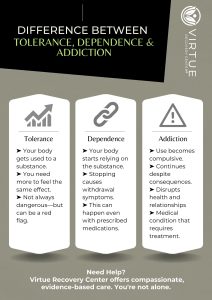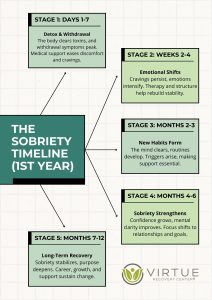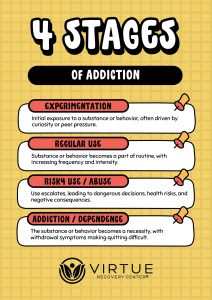Introduction
Both the users and those in the process of rehabilitation must know how long MDMA, also known as Molly or Ecstasy, stays in the system. MDMA is a psychoactive drug that produces stimulating and hallucinogenic effects and is commonly used in parties and other social events. However, its consumption has many adverse effects, such as dependency, mental disorders, and severe health complications.
The time that MDMA can be detected in the body depends on several factors, such as the type of test used, the metabolic rate of the individual, the frequency of use, and the amount of the drug taken. This article will provide more details on the detection time of MDMA through blood, urine, and hair tests and the factors that affect these times. Furthermore, we will describe the most frequent signs and consequences of MDMA consumption to help those who want to know more about the drug’s effects on the body.
Question: How long does MDNA or ‘Molly’ stay in your system on average after use?
Answer: On average, MDMA (Molly) can be detected in your system for different durations based on the type of test used:
- Blood: Up to 24 hours
- Urine: 1-3 days for occasional users, up to a week for heavy users
- Hair: Up to 90 days
These times can vary depending on metabolism, frequency of use, dosage, and overall health.
Key Takeaways
| Detection Time in Blood | Up to 24 hours |
| Detection Time in Urine | 1-3 days for occasional users, up to a week for heavy users |
| Detection Time in Hair | Up to 90 days |
| Factors Affecting Duration | Metabolism, frequency of use, dosage, overall health |
| Symptoms of MDMA | Increased energy, euphoria, emotional warmth, distorted perception |
What Is MDNA?
Molly or Ecstasy is a synthetic drug that has properties of both stimulants and hallucinogens, and it is commonly referred to as MDMA. It is chemically related to methamphetamine and mescaline and causes increased energy, pleasure, warmth, and changes in perception of the senses and time. MDMA was first introduced as a party drug, which was commonly used in clubs, raves, and music festivals. It increases serotonin, dopamine, and norepinephrine levels in the brain, responsible for the drug’s pleasurable and social effects.
MDNA is popularly used by participants in “raves” due to providing increased energy, endurance, sociability, and sexual arousal. This trend among teenagers and young adults, coupled with the popular perception that ‘ecstasy’ is a safe drug, has contributed to the growth of its illicit trade. However, these drugs also produce severe toxic effects, both acute and chronic, similar to those observed with other amphetamines due to the same sympathetic stimulation for which the drugs are sought. Neurotoxicity to the serotonergic system in the brain can also lead to long-term physical and psychiatric complications. “Ecstasy” abuse can lead to death due to hyperpyrexia, rhabdomyolysis, intravascular coagulation, hepatic necrosis, cardiac dysrhythmias, cerebrovascular accidents, and drug-related accidents or suicides.
Pharmacological and toxicological properties of MDMA and similar substances.
Ecstasy’s chemical designation is N-methyl-3,4-methylenedioxy-amphetamine or 3,4-methylenedioxy-methamphetamine. The first letters of the major parts of the latter name (Methylenedioxy-Methamphetamine) form the acronym MDMA, which is used frequently in the clinical and research literature. As the name suggests, MDMA is a methamphetamine (commonly referred to as ‘speed,’ ‘crystal,’ or ‘meth,’ among others) and its parent compound, amphetamine.
The use of MDMA is not without its dangers. It can cause dehydration, overheating, and serotonin syndrome, particularly when taken in large quantities or conjunction with other substances. Prolonged use of MDMA can lead to cognitive impairments, such as memory loss and mood disorders. Since MDMA is a stimulant, it can lead to increased heart rate and blood pressure, which are also dangerous for the body. It is, therefore, important for users and healthcare providers to understand these effects to ensure that adequate education and treatment are provided to those who have used MDMA.
Help with a molly addiction is within reach!
At Virtue Recovery Center Las Vegas, we specialize in providing holistic and individualized treatment for substance use disorders, including MDMA addiction. Our programs encompass detoxification, residential treatment, and various therapeutic approaches to support lasting recovery. If you or a loved one are struggling with MDMA use, our team is here to help guide you toward a healthier, substance-free life.
Detection Times by Test Type
Blood Test: MDMA is detectable in the blood for up to 24 hours post-ingestion. Blood tests are typically used in situations requiring recent use detection, such as in emergency rooms.
Urine Test: MDMA can be detected in urine for 1-3 days for occasional users. However, it may be detectable for up to a week for heavy users. This extended detection time is due to the drug accumulation in the body, which is frequently used.
Hair Test: Hair tests can detect MDMA use for up to 90 days. This method is less common but provides a longer detection window, making it useful for monitoring long-term substance use patterns.
Factors Influencing Detection Duration
Several factors influence how long MDMA stays in your system:
- Metabolism: Individuals with faster metabolisms will process and eliminate MDMA more quickly than those with slower metabolisms.
- Frequency of Use: Regular users may retain traces of MDMA in their system for a longer period compared to occasional users.
- Dosage: Higher doses of MDMA will take longer to be metabolized and excreted from the body.
- Overall Health: Liver and kidney function, body mass, and hydration levels can all affect the rate at which MDMA is processed and eliminated.
Symptoms and Effects
MDMA is a drug that produces stimulant and psychedelic effects, such as increased energy, pleasure, empathy, and changes in the perception of colors, shapes, and time. These effects are usually felt within 3-6 hours after taking the substance.
The negative consequences of using MDMA include dehydration, hyperthermia, and possible long-term cognitive deficits. It is crucial for users to be informed of these risks and to consult a professional if they encounter adverse effects or symptoms of dependence.
At Virtue Recovery Center Las Vegas, we offer comprehensive treatment programs for those struggling with MDMA addiction. Our services include detox, residential treatment, and various therapeutic approaches to support lasting recovery. Learn more about our offerings and how we can help you or a loved one start the journey to recovery today.
For more detailed information on our addiction treatment services, visit Virtue Recovery Las Vegas.
FAQs About How Long MDMA Stays in Your Body:
Q: How long does MDMA stay in your blood?
A: MDMA is detectable in the blood for up to 24 hours after use.
Q: How long does MDMA stay in your urine?
A: MDMA can be detected in urine for 1-3 days for occasional users and up to a week for heavy users.
Q: How long does MDMA stay in your hair?
MDMA can be detected in hair for up to 90 days.
Q: What factors affect how long MDMA stays in your system?
Factors include metabolism, frequency of use, dosage, and overall health.
Q: What are the common symptoms of MDMA use?
MDMA use can cause increased energy, euphoria, emotional warmth, and distorted sensory and time perception. Long-term use can lead to cognitive deficits and mood disorders.
Does MDMA (Molly) also have long-term effects on the body like cocaine?
MDMA, also known as Molly, can have long-term effects on the body similar to the longterm effects of cocaine use. Prolonged use of MDMA can lead to memory and cognitive problems, as well as changes in mood and sleep patterns. It’s important to be aware of the potential risks associated with MDMA use.
Citations
Medical News Today – “Molly: How long does it stay in your system?”
https://www.medicalnewstoday.com/articles/327526
Healthline – “How Long Does Molly (MDMA) Stay in Your System?”
https://www.healthline.com/health/how-long-does-molly-stay-in-your-system
DNA Legal – “A Guide to MDMA Drug Testing”
https://www.dnalegal.com/mdma-drug-testing
URMC Health Encyclopedia – “MDMA Drug Screen (Urine)”
These citations provide a comprehensive overview of the signs of MDNA addiction in teens, including physical, behavioral, and psychological indicators.













